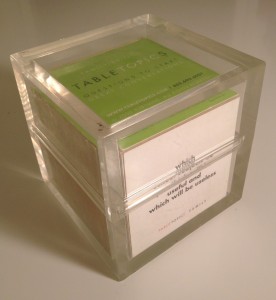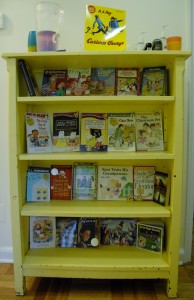Ironically, “be more specific” is the most uselessly vague criticisms my students seem to get about their writing. I am tempted to give them official permission to growl at the next person who says it to them.
When I ask new (English-fluent) students how they could improve their first piece of writing for me, 90% of them say they should have used more details or been more specific. And when I have followed up with, “What do you mean by that? Can you show me an example of what you would change?” only ONE student has ever actually known how to make such a change. One. It breaks my heart to know all of those kids have taken the criticism to heart without any understanding of how to fix it. They must feel such impotence.
So what can a parent do to help their child? Think about what led you to say, “Be more specific” and discuss that. Do you not have a good mental picture of the setting in your mind? Are you confused about the order of events? Are the words repetitively boring because everyone “goes” and “says” and “is” but never does anything with any other verbs?
Be able to point to something specific in the text as an example and explain your problem. “It says here that she’s driving. I imagined a car because that’s the most common but in the next paragraph the story talked about ‘closing the back gate’ and I realized that what I was imagining was wrong.” “I know there are three sisters but you don’t tell me their ages so when you say ‘the oldest one,’ I’m not sure who you’re talking about.” After being specific, ask the kid to look for any other places that might confuse someone.
If you can’t point to anything specific in their own writing except a total lack of adjectives, ask them to draw a picture of their story and then express surprise at a newly discovered detail. “I did not realize the house was red! I bet the people who are only reading the words would love to know that. Where could you add some words to tell them?”
Even better, instead of criticizing the work (because, oh, we make writing such a mysterious game of “guess what the adult is going to dislike this time” and just being appreciated sometimes is invaluable in creating adults who don’t hate writing), give them confusing texts themselves to read and ask them what the author could have explained better. When you are reading aloud to your child, pause sometimes if you could *reasonably* misinterpret something unspecified and talk about what the author could have said instead. If you are reading picture books, say “I sure am glad that picture shows that the old woman whispering hush is a rabbit, because the words by themselves would not give me that detail!” When you are reading to yourself and see a sentence with great details, share it out loud with your family. “I love how this book describes the ocean. Listen to this…”.
If we want kids to be specific, we have to start by being specific ourselves!


